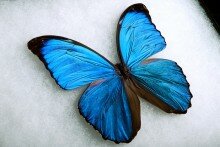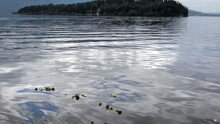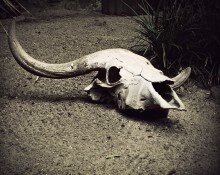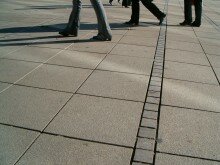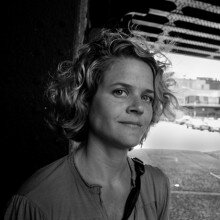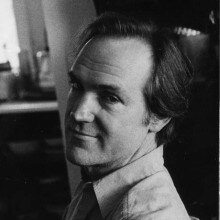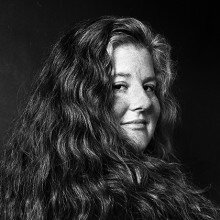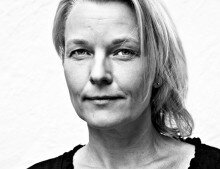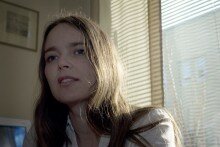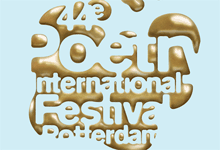The Job of the Poet
To paraphrase poet Paul Celan, poetry serves to shed light on inside of ourselves: to understand the world and to understand each other. I use writing in order to allow the hidden movements of things to emerge, to view the secret life found under the skin. In this light, I have chosen to observe the body, which becomes the metaphor, the lens though which to read the world, a microcosm of fascinating workings.
Even if I refer to tiny details, to experiences that appear extremely private, I always feel that I am also speaking to the reader’s body. From a microcosm to the macrocosm of the common malaise, to Montale’s “mal di vivere” (“the evil of living”), which is also expressed through everyday objects that are apparently harmless, but are actually strong metaphors. Writing poetry means forcing yourself to rediscover (and to cause to rediscover) reality, to pause for a longer time in front of things, to hear their inner noise. This interest in the physical and in images, together with a scarce love of abstraction, is also the fruit of my training as a historian of contemporary art, a world that continues to nourish my writing.
Not surprisingly, my early texts were strongly affected by those authors who in a certain sense initiated me to poetry (listed here in order of discovery!): Montale, Rilke, Dickinson and Plath. Reading such diverse writers gave me the chance to measure myself against different styles and rhythms, and to find my own style, after years of ‘angels’ and ‘circumferences’. Of course, there were also the writers from my school days (and then university) and then anthropological essays, comic books, much fiction both American and non, and lastly music.
My years of study in the United States allowed me to discover new voices which were extremely different from what I had read up until then: by reading Sharon Olds and Adrienne Rich I learned in turn to tell stories that frightened me but that had to be told because they were necessary. Certain themes – the self, the other, the body – started to appear urgent to me, and I began to recognise the brutal light of affectivity, a light that is shadowy and contradictory: my poetry became political, in the broadest sense of the term, an attempt at a ruthless analysis of living. I am not aiming to make things difficult for the reader with these texts, but I don’t want to console him either. I try to elicit in readers questions regarding their lives, in order to create a space for comparison and reflection.
Good poetry has the capacity to create a parallel, real space, where things emanate a stronger light: in the words of poet Antonella Anedda, “poetry is an immaterial space where distances are vertical, cancelled by the sudden swerving of images.” Of course, a strong light can blind or stun but it is indispensable in order for us to look deeply into ourselves and the world that surrounds us. This light risks burning because poetry is an attempt at living, actually the only way to live, but it is at the same time the demonstration that it is impossible to live, to paraphrase Kafka.
Herein lies the difficulty of the poet, his desire to bear witness to the uneasiness of daily life and to the almost impossible, yet necessary struggle (like the biblical one of the angel and Jacob), while at the same time tempting the reader to continue reading, to rethink himself, to fight to see himself more clearly (something the reader does not always want to do … even though he is grateful after the fact!). My instruments in this path of “reading and translation of living” are strong images and a dry language, a dense imploded material, a black hole of meaning. Brief verses, but so laden with energy as to invade the blank page. After a first draft, I tend to cut, to polish, to clean down to the bone, leaving one or two burning images. It is a language that remains suspended, that does not tell all and stays open in front of the reader. I believe, as Valerio Magrelli says,
A language cannot tell it all: there exist between its words white and empty spaces, dug out like slits, silent, but that the wind passes through. That’s where one must spy on the arrival of the guest.
Guest-meaning, guest-other, The Guest (L’Ospite ) who gives his name to my most recent collection, questions himself precisely about an attempt to communicate, an attempt that is often disastrous, but that must be undertaken. One writes about what one knows (at least as far as successful writing is concerned) and these texts reveal a household universe where the rhythm of time is kept by private obsessions, rituals of survival, and described with a tone that alternates violence and melancholy.
The condition of the second person, the ‘you’, victim of an imposed (and self-imposed) role, becomes that of the lament, of revolving around oneself because outside is the void. Despite the real and psychological distance between “the I and the you”, there slowly emerges a transparent red thread that ties the two and take the ‘I’ prisoner, since in this reality, no hope is born from the shared destiny. The feelings of ambivalence, of love-hate toward the ‘you’ are considered taboo, and lead to the necessity of breaking this silence with the use of a language that is direct, devoid of sentimentalism, that alternates a colloquial tone with words of an elevated register (often from the medical field, for example).
It is a language attentive to rhythmical effect but first of all to the effective succession of images, dictated by a will to get to the bottom of things in an almost surgical way. Writing poetry is an act of responsibility. Whether in the choice of themes and language or in the search for an interlocutor, everything presupposes a complete and constant awareness of one’s own actions; the abandon must always be controlled.
Translated by Berenice Cocciolillo
First published at Treccanini


